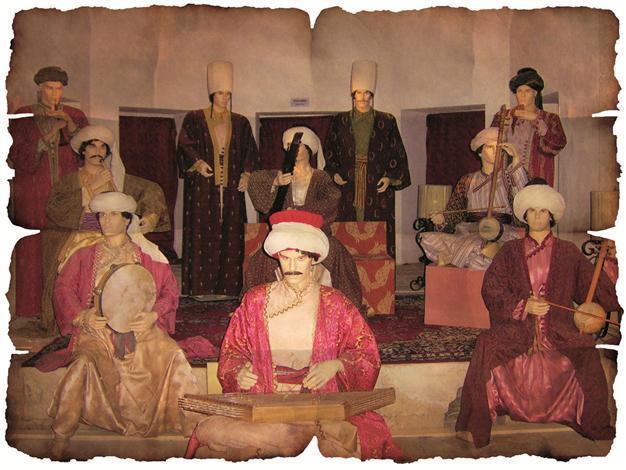Center to study music at the time of Ottomans
ISTANBUL - Anatolia News Agency

Director of the Otoman Music Application and Research Center, Gönül Paçacı says Turkey has a very rich music heritage but has not so far make a detailed inventory.
Turkey’s first Ottoman Music Application and Research Center has been established within the body of Istanbul University (IU). The center will carry out research to determine Ottoman era music.IU State Conservatory Turkish Musicians head and the center’s director Gönül Paçacı said Turkey had a very rich music heritage but a detailed inventory work had not been carried out so far to determine the types of music that existed during the Ottoman era.
She said inventory work had been applied in all fields of art but not in music despite Turkey having many institutes and conservatories. She said that considering this need, the Ottoman Era Music Application and Research Center, the first of its type in Turkey, was proclaimed in the Official Gazette in January.
Paçacı said first the center would obtain resources on Ottoman period music and then carry out detailed inventory work.
“The center will analyze all libraries, manuscripts in the Topkapı Palace, the IU State Conservatory, which is the continuation of Darülelhan, where the first research on music was made in the Ottoman, musical instruments in the university’s rare works of art unit and special collections in order to create a database.”
The work would be a long process necessitating a specialized staff, she said, and they would also translate the Ottoman documents into Latin and transfer the information to the virtual platform to share them with the public.
She said they would focus particularly on the 17th century because people had begun to create musical compositions in the beginning of the 1600s.
The Ottoman Term Comparative Music License Program would open in the musicology department of the conservatory next year, Paçacı said, and they would also prepare a big encyclopedia about Ottoman era music.
She said the establishment of such a center was delayed in Turkey because lots of documents and resources had vanished.
Ideologies affected music
“Musical works in Turkey have been affected by various ideological structures. This is why the existence of music from such a civilization like the Ottoman has been forgotten through time. […] The concept of makam [melodic types] is important but the number of makams that still exist today is nearly 100 and the number of known ones does not exceed 10. This is actually an intellectual impoverishment,” she said.
Ottoman sultans attached big importance to music, she said. “This is now much known, but one of the most important Turkish pieces of music, the makam Suz-i Dilara, was composed by Selim III.”
Paçacı said all layers of society, religious groups and races made contributions to the formation of music in the Ottoman period.
















